The best polymer compounds and their wide application in various industries
Polymer compounds are important raw materials in the polymer industry, which are used as basic materials in the production of various polymer products. These compounds are compounds that include two or more different types of polymers and have a combination of their characteristics and properties. The use of polymer compounds in various industries has created many possibilities for designers and manufacturers. The advantages of using these compounds include improving mechanical properties, chemical resistance, thermal stability, increasing hardness and beauty, reducing production costs, and increasing efficiency. In this article from Tehran Plimer Sharq, we will examine polymer compounds and their wide application in various industries. 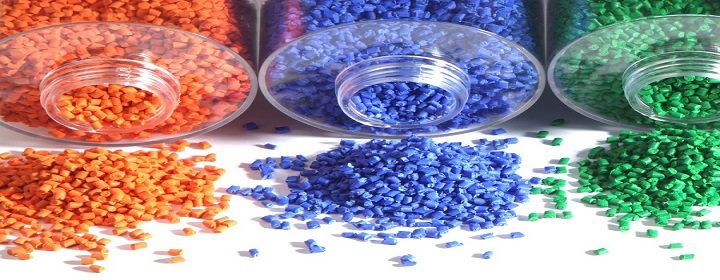
What is a polymer compound?
A polymer compound is a substance consisting of two or more different polymers that is produced as a mixture or chemical compound. These materials usually include a main polymer as a matrix and one or more other polymers as additives or reinforcing materials that are used to improve the final properties of the product. In addition to polymers, these compounds may include various additives such as colors, fillers, protective materials, etc., which are used to strengthen and improve the mechanical, thermal, chemical, and physical properties of the polymer composite. Polymer compounds are widely used to produce products with the desired characteristics in various industries, including automotive, electronics, clothing, packaging, plastics, and construction industries. These materials, with different combinations and flexibility in formulation design, can create various features in the final products.
Production method of polymer compounds
Now that we have briefly learned about polymer compounds, it is better to focus on the production method of these important raw materials. The production methods of polymer compounds can be very diverse and depend on the characteristics desired in the final product. The most important and common methods of producing polymer compounds are:
- Mechanical compounding: In this method, polymers and additives are mixed together in a solid form to create a uniform and homogeneous composition. This mixture may be prepared using ball mills, lifting mixers or special mixers inside the polymer compounder.
- Melt injection: In this method, polymers and additives are injected at high temperature and in molten form to form in special molds. This process is especially used to produce polymer parts with different geometrical complexities
- Casting: In this method, polymeric materials are poured into molds at high temperature and in molten form, and then cooled and removed from the mold. This method is usually used to produce polymer parts with simple and regular geometric shapes
- Use of advanced technologies: Technologies such as 3D printing and layered manufacturing processes (such as SLS and FDM) are also used to produce polymer compounds that help produce parts with high complexity and unique features.
In general, each of these methods has its own advantages and disadvantages, and depending on the type of product and consumer needs, one of these methods is chosen for the production of polymer compounds and granules. For this reason, it is important to pay attention to how they are produced when preparing polymer compounds. 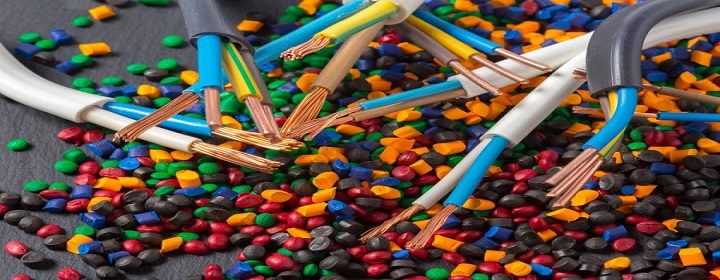
Raw materials for the production of polymer compounds
Now that we are familiar with all the common methods for the production of polymer compounds, it is better to deal with the raw materials for the production of these compounds in compounding factories. Polymer compounds are formed from the combination of different raw materials, and that is why they have many advantages. Raw materials for the production of polymer compounds include the following:
- Polymers: Various polymers such as polyethylene (PE), polypropylene (PP), polyvinyl chloride (PVC), polyester (PET), polyetherphthalate (PBT), etc., which are used as matrices in compounds.
- Additives: This includes substances such as fillers, reinforcing agents, colorants, sunscreens, antioxidants, and antistatic agents that are used to improve polymer properties and adjust the final properties of polyethylene compounds.
- Nano materials: Nano materials such as nanocomposites and nano particles that are used as reinforcing materials in polymer compounds to provide improved mechanical, thermal and other required properties of products.
- Chemicals: This includes chemical additives such as oils, anti-adhesives, catalysts, and preservatives that are used to control chemical processes and improve production efficiency.
- Pigments and dyes: substances such as primary colors and pigments that are used to create color and beauty in the color compound.
Finally, note that some other materials such as chemical engineering materials, mineral raw materials and other raw materials may also be used to produce polymer compounds, and this depends on the special needs and specifications of the product.
Types of polymer compound production devices
In order to fully understand the production process of polymer compounds, it is better to know the production devices of these compounds. There are different devices with different models that do the job of producing polymer compounds. The different types of these devices are:
- Mixer: These devices are used to mix polymer materials and additives together. They can produce different mixes that are adjusted according to the end product needs
- Extruder: Extruders are used to produce polymers with a symmetrical and uniform structure. These devices continuously squeeze polymer material through a drill
- Injection Molding Machine: These machines are used to inject polymer materials into molds to produce plastic parts with different shapes. They are suitable for high volume and high speed production
- Calender machine: These machines are used to produce polymer sheets with different thickness and smooth surface.
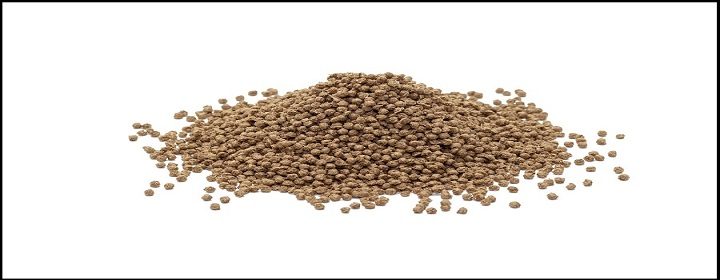
Advantages of using polymer compounds
In this section, we discuss the advantages of using polymer compounds in various industries. The use of these compounds provides many benefits to consumers and can save costs. The use of polymer compounds has several advantages, including the following:
- Increasing the mechanical resistance of products: Polymer compounds can improve the mechanical resistance of products and strengthen them against impact, tension, pressure and erosion. Adding reinforcing materials such as glass or carbon fibers can increase the wear and impact resistance of products
- Improving thermal properties: Polymer compounds can improve the thermal properties of products and make them more resistant to high or low temperatures. Adding heat-resistant materials such as nano materials can increase the working temperature range of the product
- Weight reduction: The use of polymer compounds can reduce the weight of products, which is very important in industries such as the production of compressed pipes. Adding lightweight fillers such as nano materials or special fillers can reduce the weight of products, but at the same time maintain their mechanical properties.
- Improvement of physical properties: Adding polymer compounds can help improve physical properties such as transparency, flexibility, hardness and beauty of products. Adding colors, pigments and other materials can improve the appearance of the product and increase its appeal.
These are just some of the advantages of using polymer compounds, and in fact, these advantages depend on the type of materials used and the type of final product. If you are interested in using different colors in polymer products, you can use a variety of colored compounds to give a special variety to the products. 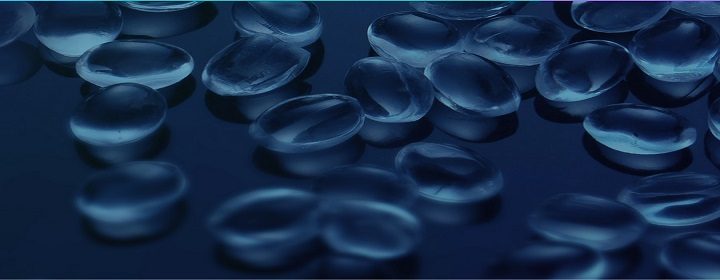
Types of polymer compounds and features and applications of each type
Polymer compounds have a wide variety and each of them has specific features and applications. By knowing the types of polymer compounds, you can get to know the wide variety of these compounds. In the following, we will mention the types of polymer compounds and the characteristics of each type.
Engineering compound
Engineering compound is a type of polymer compound specially designed for engineering and industrial applications. These compounds usually include specialized polymers and additives with special characteristics that improve and regulate the physical, mechanical, thermal and chemical properties of the final products. Common applications of engineering compounds include automotive parts, industrial equipment, electronic equipment, building structures, as well as the production of parts with special characteristics for special environmental conditions. These compounds create more variety in the final products with different compositions and taking into account the needs of different industries.
Composites reinforced with glass fibers
Compounds reinforced with glass fibers are a type of polymer compounds in which glass fibers are used as a reinforcing material. These fibers are distributed as knots in the polymer matrix and improve the mechanical properties of the product. Compounds reinforced with glass fibers usually have advantages such as high resistance to impact and tension, high hardness, light weight and resistance to erosion. These features make them a suitable choice for applications such as the automotive industry, the aircraft industry, construction, and the production of sports equipment and devices.
Filling compounds
Filler compounds are a type of polymer compounds that include main polymers plus fillers such as silica, kaolin, graphite, talc and nano materials. These fillers are added in different amounts to the polymer matrix to improve various properties such as mechanical strength, corrosion resistance, hardness, weight strength and thermal properties of the product. The applications of filling compounds include the production of plastic bottles, pipes, industrial parts, automotive parts and packaging materials (plastics industry). The use of these compounds usually reduces the production cost, increases the hardness and mechanical resistance of the products, and also reduces their relative weight. 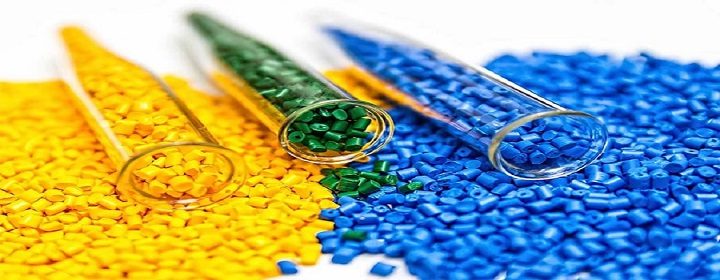
Sound insulation compounds
Sound insulation compounds are another type of polymer compounds that are designed to absorb sounds and prevent them from spreading. These compounds usually include specialized polymers and various additives such as fillers, sound absorbing materials and nano materials. The properties of sound insulation compounds can include resistance to sound propagation, absorbing harmful sounds, reducing sound reflection and increasing the quality of ambient sound. The applications of sound insulation compounds include the construction and installation of sound panels on the internal and external walls of buildings, use in cars to reduce the penetration of external sounds, use in audio and acoustics industries, and also use in environments that need to reduce sound and also conserve energy, such as recording studios. , conference halls and cinemas.
Rheological cleaning compounds
Rheological cleaning compounds are a special class of polymer compounds that are used to improve and control the rheological properties (flow properties and behavior of compounds) of products. These compounds usually include various additives such as lubricants, stabilizers, separating additives, anti-stretching agents, anti-sticking agents, etc. The main features of rheological cleaning compounds are:
- Controlling and improving the behavior of viscosity and permeability of materials
- Reducing friction and achieving an optimal level in flow processes
- Improving the quality and uniformity of compounds
- Reduction of flow problems such as stickiness, sedimentation and refineability
- Increasing the efficiency of production and processing processes
The applications of rheological cleaning compounds are usually in various industries such as oil and gas, petrochemical, mining, food, pharmaceutical and chemical industries, which require precise control of the rheological properties of materials and their flow processes. 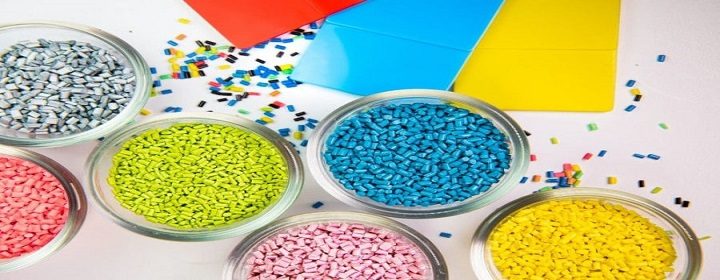
Environmental effects of polymer compounds
Now that we are fully acquainted with the types of polymer compounds and their use in various industries, it is better to know about the environmental effects of these compounds. Polymer compounds, like other materials and industrial products, can have different environmental effects. The most important environmental effects of polymer compounds are:
- Production of plastic waste: The use of polymer compounds may lead to an increase in the production of plastic waste, which can be harmful to the environment, especially if not properly managed and disposed of.
- Energy consumption: The production processes of polymer compounds require high energy consumption, which may cause an increase in greenhouse gases and other negative effects on the environment.
- Climate change: The production and disposal of waste gases from the production processes of polymer compounds may lead to climate change and affect the world’s climate.
- Aquatic habitats: Plastic waste dumped into seas and oceans can act as sources of aquatic pollution and pose a serious threat to aquatic wildlife.
- Reduction of biodiversity: environmental destruction due to improper use or irresponsible disposal of polymer compounds can lead to a reduction in biodiversity and risks for various human and non-human vital species. Therefore, the correct disposal of polymer waste and attention to the principles of the environment are very important
Considering these effects, proper management of waste, use of cleaning and recycling technologies, use of renewable energy sources and production processes in sustainable ways can help reduce the negative effects of polymer compounds on the environment.
Important factors that affect the final price of polymer compounds
Finally, it is important to mention the factors affecting the price of polymer compounds. Several factors affect the price of polymer compounds and can cause fluctuations. In the following, we mention the most important of these factors:
- The type of raw materials: the type and quality of polymer materials and additives used to produce the compound can directly affect its price. Materials with higher quality and cleanliness usually have a higher price
- Production technology: The use of advanced technologies in the production process of polymer compounds can increase the cost of production, which affects the final price of the product.
- Production scale: The production scale of compounds can also have a great impact on the price. Usually, production on a larger scale can reduce production costs and thus lower the price
- Supply and demand: The amount of supply and demand in the market of polymer compounds directly affects their prices. When the demand is higher than the supply, the price usually increases, and on the contrary, if the supply is more, the price usually decreases.
- General market conditions: Factors such as exchange rate changes, economic conditions, changes in laws and regulations, market needs, etc. can also affect the price of polymer compounds.
- The state of global markets: Changes in global markets of polymeric materials and their prices can directly affect the price of polymeric compounds. Also, the price of international currencies will have a great impact on the price of compounds
According to these factors, determining the price of polymer compounds requires a detailed analysis of the market, production costs and existing economic conditions. In order to be able to buy polymer compounds at the best price, you need to go to reliable stores and suitable distribution centers. 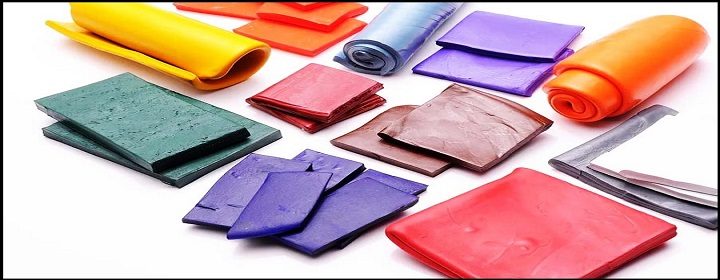
Buy the best polymer compounds from Tehran Plimer Sharq collection
Polymer compounds, as materials obtained from the combination of polymers and various additives, have very wide features and applications. Polymer compounds are used in automotive, electronics, medical, construction and many other industries. Since polymer compounds play an important role in the development of various industries and the advancement of technology, it is vital to pay attention to these materials and improve their production processes and applications. If you are also interested in using these compounds in different industries, you can buy Tehran Plimer Sharq products. By supplying all kinds of products made from polymer compounds as well as supplying raw materials, we help you to have access to the best and highest quality compounds by paying the lowest cost. For more information, you can contact our experts.


No comments